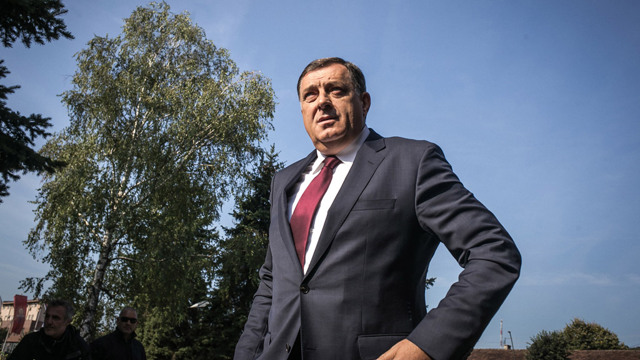Sometimes diplomacy cannot handle more than one crisis at the same time. Today the European Union keeps its gaze fixed on its “eastern flank”, towards Belarus and Ukraine (both of which deserve its attention), but it would do well to also take an interest in an area closer to the “southern flank”, and more precisely to Bosnia and Herzegovina, in the heart of the Balkans.
In this state born thirty years ago after the implosion of Yugoslavia, alarm signals are multiplying. Bosnia, in fact, threatens to sink into a new crisis and total collapse. As we said at the time of the siege of Sarajevo in the nineties, all this happens two hours from Paris and has consequences for the rest of the continent.
The fate of each of the states born from the war in Yugoslavia, a European tragedy, is very varied: Slovenia and Croatia have become part of the Union, while the other five states (including Kosovo, six if we add an Albania from peculiar story) are in a political no-man’s land, between instability and aspirations.
In this historical and human complexity, Bosnia and Herzegovina is a separate case. The country itself constitutes a small Yugoslavia – with the Serbian, Croatian and Muslim components – and reproduces the same fault lines.
After the Dayton Accords, which were negotiated in 1995 under the aegis of the United States to end the cruelest war experienced by Europe since 1945, Bosnia has maintained a fragile equilibrium that is now threatened.
The threat is that of the collapse of a state based on two entities: on the one hand the Serbian side (Republika Srpska), on the other the Croatian-Muslim federation. The Serbian leader of Bosnia, Milorad Dodik, has been making nationalist claims for years. This time, however, he took action.
In October, Dodik got the Serbian entity’s parliament to vote on some laws sanctioning a de facto secession, creating a Serbian army and withdrawing the Serbs from several common institutions. If Dodik goes further, many observers fear that secession could rekindle a conflict that has never ended and that thirty years of cohabitation have not made people forget. There will be no “velvet divorce” here, as happened in Czechoslovakia. All Bosnians are confident that violence is around the corner.
What can Europe do? First of all, it can prevent some states from adding fuel to the fire, such as Viktor Orbán’s Hungary or Janez Janša’s Slovenia. The two recently met and encouraged the Serbian leader.
The Union is unable to act united in the Balkans, because the issue of enlargement divides the member states. Union membership is the only prospect that could stabilize the region, but it is impossible in the short term. At the same time, action by the 27 in Bosnia is absolutely essential, also because Russia, China and Turkey are very active in this problematic area, and thrive thanks to widespread instability. But it is above all for the Bosnian population, thirty years after the siege of Sarajevo, that a new war on European soil must be prevented.
(Translation by Andrea Sparacino)
.
